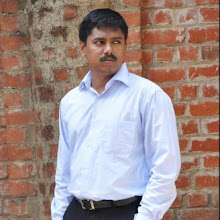Depression remains under-detected and under-treated because of the stigma
In Delhi, 35-year-old Sujata Juneja’s family is distressed at their daughter’s behaviour. She sits alone, mostly silent and motionless, most of the day, has spells of weeping, refuses to come out of her room and join the family for anything.
It takes much persuasion to get her to bathe, change, eat, visit the doctor, or take her medication.
Sujata, who was generally a diffident person, and had no hobbies too as a child and teenager, later became a homemaker. Her husband left her for another woman eight years ago, and three years later, she lost one of her twin sons. “Her in-laws noticed she was sinking, and sent her back to our home, but by then she was in deep depression,” say her parents.
Typical Symptoms
Ramesh Diwakar, who works at a Mumbai-based counselling centre, says most of their visitors are plagued by feelings of sadness, futility, and lack of self-worth. Nothing is worth their interest or effort. For counsellors, the first challenge is to open communication channels with patients, and then tell them their situation isn’t so bad and teach them positive thinking and the attitude that life is a precious gift meant for living by fighting problems and not sinking into despair. Families (sometimes friends too) are also counselled and their support enlisted.
There are many types and levels of depression, explains Dr. Chaturvedi, Professor and Head of Psychiatry, NIMHANS, Bangalore: “Regarding types, we recognise Dysthemia or long-standing mild or moderate depression; and Major Depression which is more severe and lasts six to eight months or more.
Another classification talks of Endogenous Depression (usually part of biploar disorder), wherein genetic and heredity factors play a major role; and Exogenous Depression caused mainly by life situations/prolonged stress. Besides, there is Double Depression wherein dysthemia and Major Depression alternate; and also Smiling or Masked Depression wherein the person is outwardly cheerful but exhibits other symptoms like headache, sleep disturbances, fatigue, headache, etc.
We also judge severity based on the degree of interference with social and occupational functioning, and personal distress.”
Another classification talks of Endogenous Depression (usually part of biploar disorder), wherein genetic and heredity factors play a major role; and Exogenous Depression caused mainly by life situations/prolonged stress. Besides, there is Double Depression wherein dysthemia and Major Depression alternate; and also Smiling or Masked Depression wherein the person is outwardly cheerful but exhibits other symptoms like headache, sleep disturbances, fatigue, headache, etc.
We also judge severity based on the degree of interference with social and occupational functioning, and personal distress.”
Treatment includes antidepressants and mood-stabilisers and ECT (Electro-Convulsive Therapy) in severe cases.
Sadly, for all the medical help available, many depression patients remain untreated thanks to the stigma that still persists in India about mental disorders. Kolkata-based psychiatrist Ameet Sharma, says: “Many people don’t want others to know that they are taking their family memberto a psychiatrist for depression-treatment and often give another physical illness’s name. The right attitude is to understand this is a milder form of mental illness and very treatable at that.”
Deceptive
Dr. Chaturvedi says this stigma accounts for the fact that “depression remains greatly under-detected and under-treated in India. Another reason for under-detection is that the patient doesn’t have fever/any disability and looks quite normal. Reasons for under-treatment are discontinuation of medication once there are signs of recovery, and the myth that antidepressants are addictive.”
All doctors agree that family, friends, and physical surroundings play a major role. Once these factors are taken care of, it’s easier to treat the patient. Finally, once a person begins to engage with the world with a realistic optimism and strength of mind, he is cured.
Pubished In THE HINDU on 19th July 2009


1 comments:
Write commentsGreat post.
ReplyAlso visit my web page :: seo ()